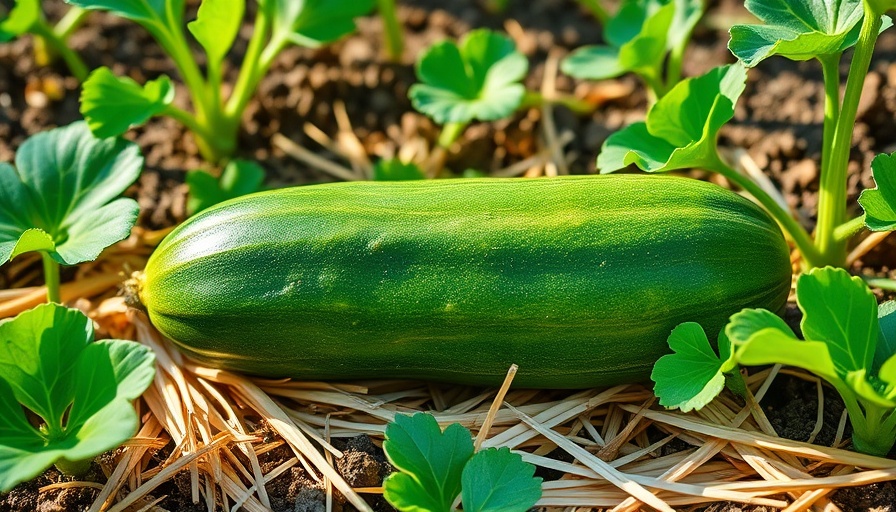
Unlocking the Secrets of Growing Zucchini: Why Fertilization Matters
Zucchini, with its tender texture and versatility, holds a cherished spot in many gardens and kitchens. As more individuals embrace the joys of home gardening, understanding how to nurture this prolific vegetable can enhance your culinary experience while ensuring a bountiful harvest. Fertilizing zucchini is not merely an agricultural chore; it’s an essential step that can elevate your garden’s success and help you savor rich flavors right from your backyard.
Preparing Your Soil: The Foundation of Success
Healthy zucchinis begin with rich, nutrient-dense soil which serves as the foundation for plant growth. A good gardener knows that soil rich in organic matter promotes the flourishing of beneficial microorganisms, setting the stage for vibrant zucchini plants. Begin your preparation a few months before your planting date by incorporating organic materials such as leaves, compost, and well-aged manure. This enhances drainage and stimulates microbial activity, essential in breaking down nutrients.
When to Fertilize: Timing Is Everything
There are two pivotal moments to fertilize zucchini: first, during soil preparation, and second, at flowering onset. Each stage requires energy that your zucchini plants must draw from the soil. By fertilizing ahead of sowing and again when blooms appear, you mitigate potential growth plateaus, ensuring your zucchinis develop properly and are well-nourished.
Choosing the Right Fertilizer: Organic vs. Synthetic
The market offers a plethora of fertilizer choices, each catering to various types of plants, including fruits and vegetables. Organic options are often touted for promoting a sustainable approach to gardening, aligning with eco-friendly practices. They foster long-term soil health rather than offering quick fixes. A balanced blend tailored for fruits and vegetables is advisable since it supports the energetic growth characteristic of zucchinis.
Pest Management Tips: Keep Your Zucchini Healthy
A successful zucchini crop relies not only on proper fertilization but also on effective pest management. Keep an eye out for common threats such as aphids and squash bugs, which can interfere with growth and yield. Utilizing organic pesticides, companion planting, or even introducing beneficial insects like ladybugs can help maintain balance in your garden eco-system.
Future Predictions: Trends in Sustainable Gardening
As gardeners increasingly turn toward sustainability, the trend of organic gardening is likely to evolve further. This move not only enhances personal health but also contributes positively to the environment. Techniques like crop rotation and composting, once seen as limits to productivity, are now praised for their ability to enrich soil and improve yield. The future of gardening is vibrant, passionate, and deeply interconnected with biodiversity.
Why It’s Critical to Know This
The knowledge of how and when to fertilize zucchini opens up a world of gardening possibilities. Knowing these indispensable tips empowers you to take control of your gardening experience, increases your appreciation for the hard work that goes into growing food, and may ultimately affect your attitude towards consuming locally grown produce.
Embracing the art of gardening is a rewarding pursuit that benefits your health, and when you begin nurturing your zucchini with the insights shared here, you'll find that the taste of your home-grown meals is unmatched. Imagine serving a fluffy zucchini bread made from your own garden harvest, enriched by the care you put into fertilizing and nurturing your plants. Ready to start your journey to better gardening? Let's cultivate some delicious zucchinis this summer!
 Add Row
Add Row  Add
Add 




Write A Comment